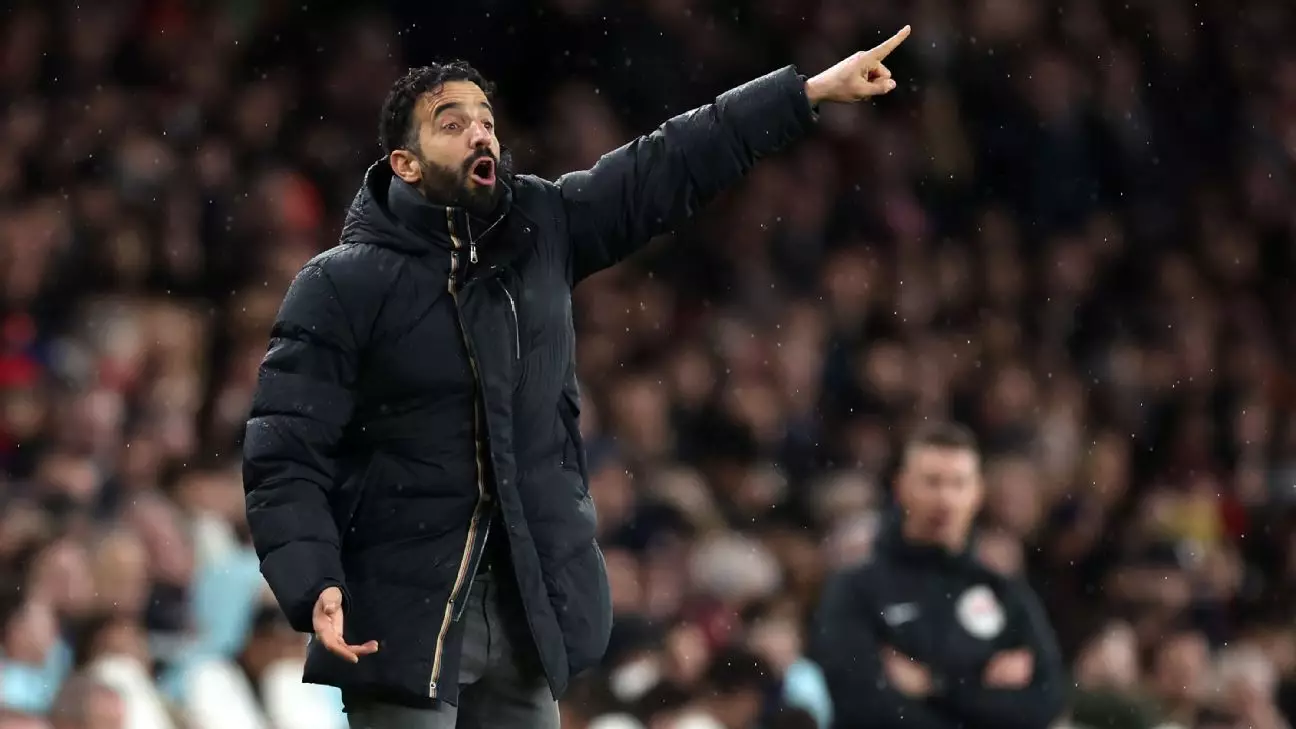Ruben Amorim faces a significant challenge as he steps into his new role at Manchester United, a club synonymous with success yet currently grappling with underwhelming performances. Amorim openly acknowledges the complexities embedded in this endeavor, characterizing the situation as one that involves not only the expectations of a storied legacy but also the harsh realities of the present. With an illustrious history that boasts a record number of English top-flight titles, the current state of affairs starkly contrasts this prestige. The club that dominated English football for decades, having last clinched the title in 2013, is now languishing in the lower half of the league standings.
Amorim’s assertion that “we’re a massive club but not a massive team” encapsulates the predicament facing United. This duality highlights a crucial aspect of the club’s identity; while the historical achievements are formidable, the current squad lacks the cohesion and competitive edge to consistently challenge for honors. The Portuguese manager’s candid acknowledgment of this gap reveals a commitment to addressing the underlying issues rather than masking them with platitudes. This genuine approach signals to players and fans alike that he is ready to confront the hard truths while cultivating a mindset geared toward improvement.
One of the foremost elements Amorim emphasizes is the necessity of hard work and commitment from the players. In his recent statements, he underscored the idea that tactical adjustments will follow once a baseline level of effort is established. The phrase “run like mad dogs” serves as a evocative principle that he intends to instill in his team. This stark reminder that success hinges on relentless effort stands in many ways as a return to the fundamentals of football, where physicality often dictates success. Applying this ethos requires not just physical readiness but a psychological shift among players accustomed to a different coaching philosophy.
Despite the uphill battle ahead, Amorim’s recognition of the squad’s capacity for growth indicates a strategic optimism. His assessment that “there’s a lot of room to improve” reflects an understanding that the current situation is not beyond redemption but rather a complex puzzle requiring time and patience. This perspective does not only place the onus on the players; it extends to the coaching structure, which must cultivate an environment where improvement is not just encouraged but expected. Developing this winning mentality, alongside refining tactical approaches, will be pivotal in reclaiming Manchester United’s rightful place in the league hierarchy.
In navigating this transitional phase, Amorim must engage both players and supporters, fostering a sense of unity around a shared vision. Installing a framework that resonates with the club’s history while molding a modern competitive spirit will not only motivate the players but also revitalize the passionate fanbase that has endured a decade of disappointments. As United aspires to ascend into a more prominent competitive realm, the focus on cultivating effort, unity, and a winning mindset amidst a legacy-filled backdrop presents an intricate yet hopeful path forward. The journey may be difficult, but for Amorim, the initial steps revolve around instilling discipline and perseverance—qualities essential for any great team aiming for a drastic turnaround.

